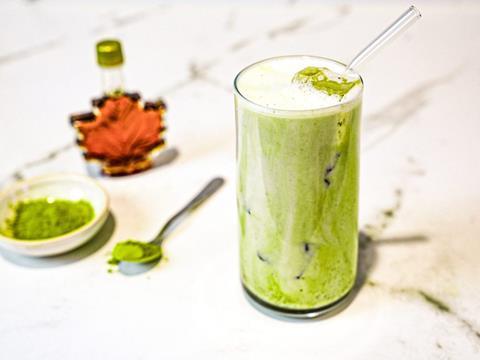Gen Z is redefining the way we eat – embracing naturally functional foods that deliver on health, taste and sustainability. Driven by wellness trends, clean labels and social media influence, this generation is turning away from ultra-processed options and reshaping the future of the food industry.
In recent years, the food industry has witnessed a remarkable shift in consumer preferences, particularly among Gen Z, the tech-savvy and socially conscious youngsters, born roughly between 1997 and 2012, who are helping to shape much of today’s food landscape.
Today’s young adults are gravitating towards naturally functional foods and beverages that fit seamlessly into their daily lives, with a shift away from the ultra-processed choices of their parents’ generation. So, what is driving to this new holistic view of healthy eating and the resulting increase in sales of naturally functional foods?
The new-look approach to health and wellness
One of the primary reasons Gen Z is turning to naturally functional foods is this group’s shifting focus on health and wellness. Growing up amid rising awareness about public health crises, environmental issues and mental well-being, this generation considers nutrition and exercise as an integral part of their lifestyle.
They are often more informed about the ingredients in their foods than previous generations and seek out items that boast natural benefits. This includes everything from snacks fortified with vitamins and minerals to smoothies packed with superfoods, and the use of natural alternatives to processed sugars. Gen Z consumers are turning to natural, untampered foods and ingredients that have an inherent health benefit, with the mantra that good food is the best fuel. This is shown by the surge in sales of whole milk, for example, along with authentic Greek yoghurt and fermented dairy products such as kefir. Today’s generation view whole milk as rich in protein, naturally nutritious and minimally processed and beneficial to a healthy diet.

Increased consumer awareness of UPFs and HFSS has also added to the shift towards reducing processed sugar or looking at more natural options for adding sweetness.
The rise of social media has played a significant role in shaping these perceptions. Influencers, not just in the eating space but in the fitness environment, share advice and experiences on Instagram and TikTok, making healthy eating appealing and accessible. The visual nature of these platforms encourages creative expressions of food, too, with exciting recipes and new eating occasions, further enhancing the allure of naturally functional foods and ingredients.
Supply chain transparency and clean label
Gen Z consumers value brands that promote clean label – those that offer clear, straightforward minimal lists of ingredients with no hidden additives or preservatives.
This desire for transparency now extends to where food comes from and how it is produced. Brands that are honest about their supply chain will be the winners with this demographic.
Sustainable choices
The climate crisis has pushed the topic of food sustainability into the mainstream, with many consumers – particularly younger consumers – now aiming to make more ethical decisions when it comes to buying food.
Awareness of the effect of sugarcane production on the environment is now pushing younger consumers to explore other options for their sugar fix, with pure maple syrup often considered as a more ethical alternative.
According to Mintel, a growing number of young consumers will choose products that align with their ecological concerns, meaning that naturally functional foods which also have a transparent, sustainable backstory will be on their shopping lists.
Flavour and functionality

While health benefits and sustainability matter, taste is still king (or queen) with Gen Z consumers. Travel means that this generation is aware of other food cultures while social media platforms enable them to also travel without ever leaving the comfort of their smartphones. Gen Z culinary enthusiasts enjoy exploring diverse flavours and cuisines, often seeking products that deliver on taste and health. Naturally functional foods have evolved significantly, with manufacturers creating snacks that don’t compromise on flavour. Think protein bars infused with rich chocolate or probiotic-rich yoghurts that come in exotic fruit flavours.
The focus on enjoyable taste and texture means that Gen Z consumers feel empowered to choose healthier options without feeling they’re missing out on the indulgent aspects of food. As a result, naturally functional foods become not just a health choice but part of the trend for experiential food and shareable social media content.
“We have made a conscious decision in our marketing to focus on the visuals of exciting new recipes that often tap into the latest viral food craze,” explains Vincent Grondin from Maple from Canada UK. ”Working with food influencers and recipe developers for social media content, which tells the story of Canadian maple syrup, its natural origins as well as its usage in exciting, healthy recipes is key to targeting the current Gen Z consumer. Over the last 10 years Maple from Canada UK has also supported women’s football, extreme sport enthusiasts, joggers and cyclists as it allows athletes to fuel with natural sugars.
“Maple syrup has been repositioned as more than a breakfast condiment but a naturally grown and harvested, functional ingredient with protein and carbohydrate that can be used in a vast range of savoury and sweet recipes often tapping into the latest social media trends,” he adds.
As we look toward the future, it’s clear that Gen Z is reshaping the food landscape. Their preference for naturally functional foods is grounded in a desire for health, transparency, sustainability, and memorable taste experiences, as Grondin concludes: “The surge of demand for naturally functional foods – whether yoghurt, milk, maple syrup, fruits, nuts and seeds, vegetables and so forth – represents an interesting change in how many now perceive foods and a shift away from ultra-processed foods. As Gen Z matures, their current curiosity about food stories and natural ingredients, will only pave the way for positive food choices in the future.”
Learn more about Maple from Canada UK here.





















